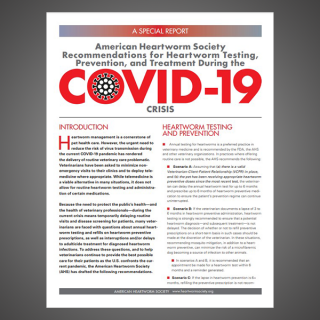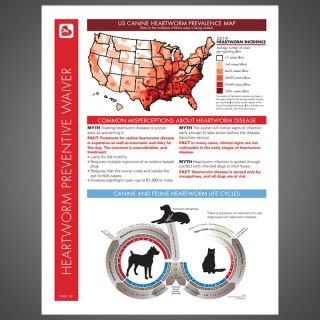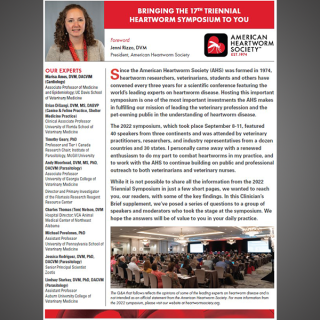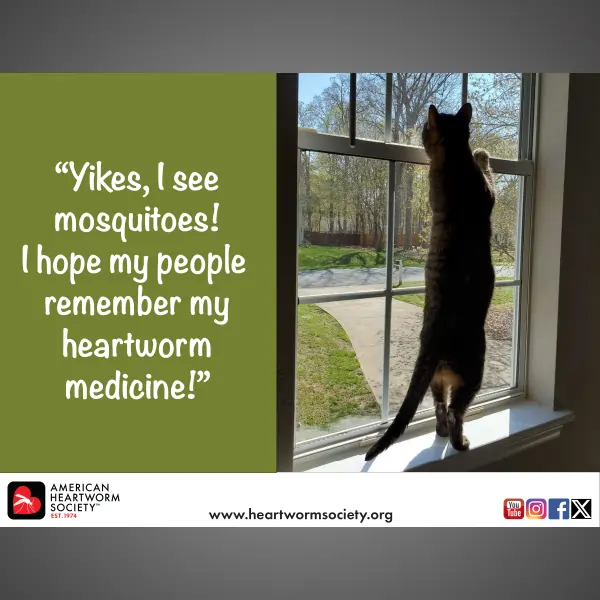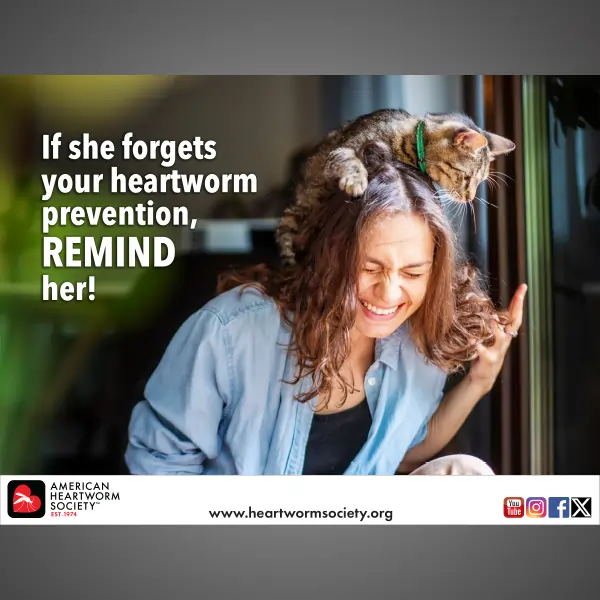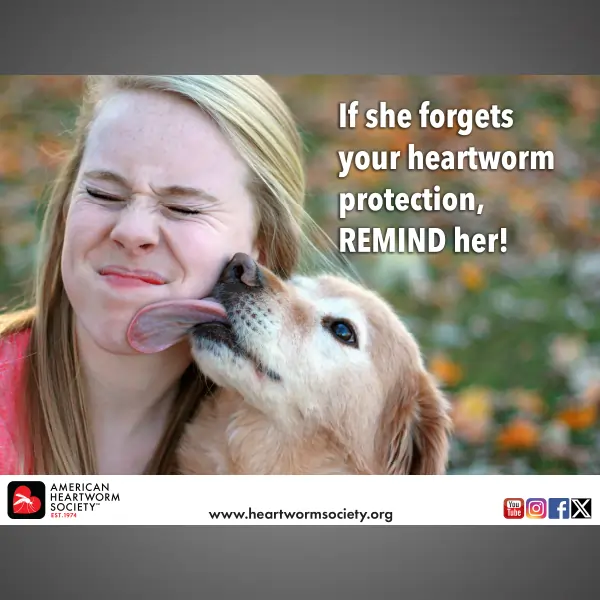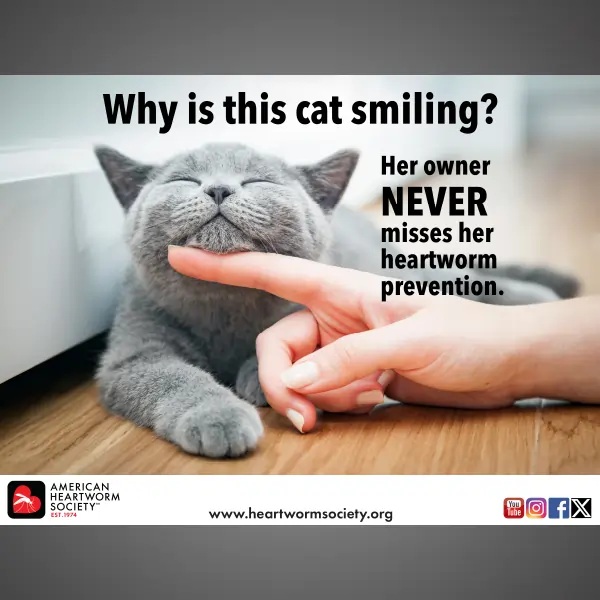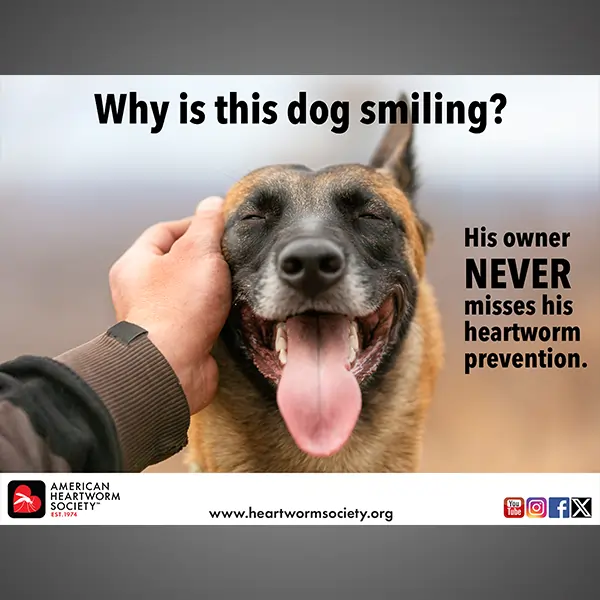When warm weather hits, you will want to ramp up your heartworm education efforts. To help make this goal easy--and fun--the AHS has created a new set of posters to print or post on your social pages.
- To save or print a poster, just click on the image below, then click on the “download” button and save the PDF file.
- To save a poster for use on your social pages, simply open the downloaded poster, then right click on the file and follow the menu instructions to save the file as a JPEG image.
For more client tools, be sure to visit the Resource Center. And if you don’t already, make sure you’re sharing our Facebook and Instagram posts!



